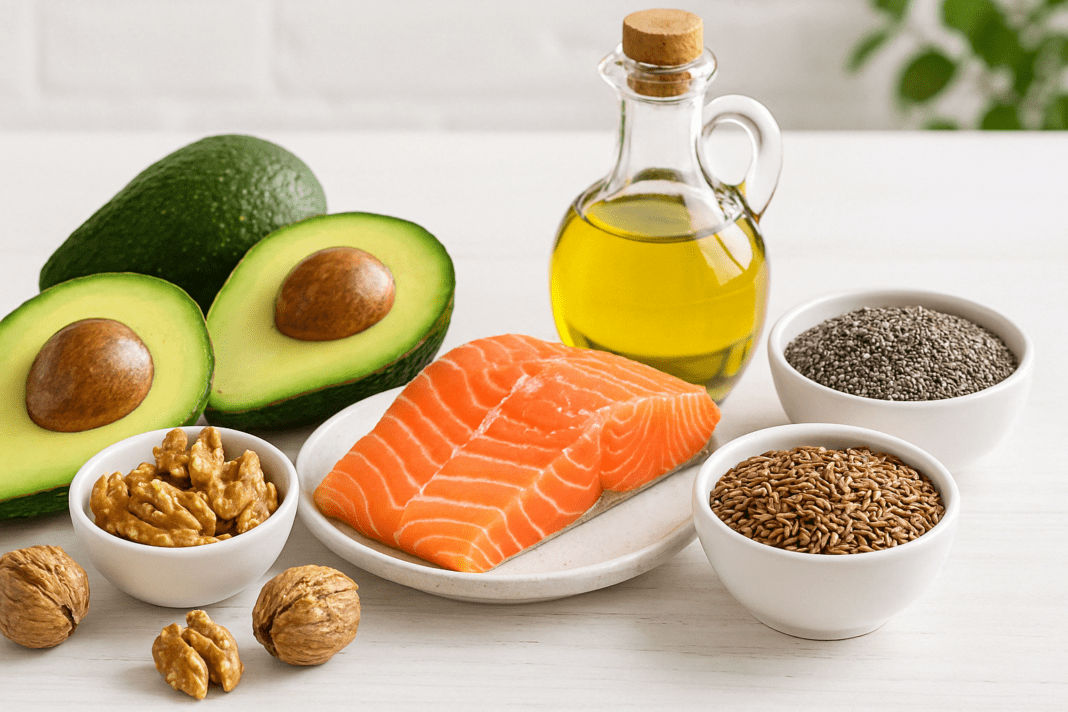Fat, often misunderstood and unfairly demonized in the realm of nutrition, plays a critical role in our health and survival. While popular culture has long encouraged low-fat diets, modern science paints a far more nuanced picture. Dietary fats are essential macronutrients, meaning the human body cannot function properly without them. They are vital for the absorption of fat-soluble vitamins (A, D, E, and K), hormone production, cell membrane integrity, and brain function. Despite this, fat deficiency remains an underrecognized problem, especially in individuals who overly restrict dietary fats or suffer from absorption disorders. This article explores what experts say about fat deficiency, with a focus on what are 3 symptoms of deficiency of fats and one thing that happens when you are deficient in healthy fats, shedding light on the deeper consequences of inadequate fat intake and offering practical advice rooted in the principles of medical accuracy, expert insight, and nutritional science.
You may also like: Macronutrients vs Micronutrients: What the Simple Definition of Macronutrients Reveals About Your Diet and Health
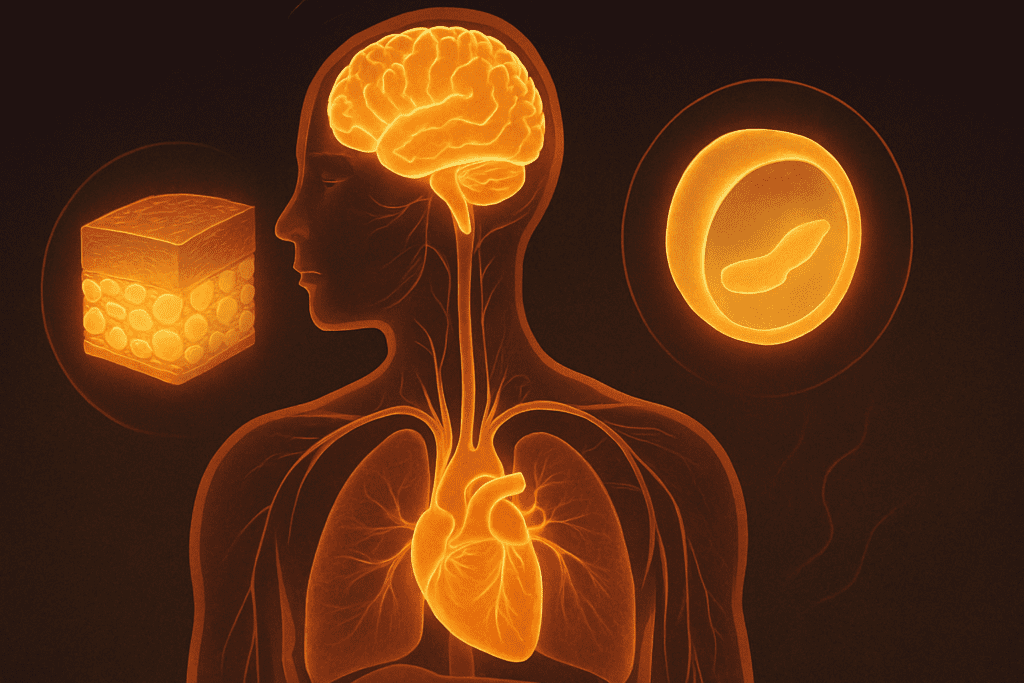
Understanding Essential Fats and Their Role in the Body
To comprehend the implications of fat deficiency, one must first understand what constitutes a healthy fat. The term “healthy fats” typically refers to unsaturated fats, including monounsaturated and polyunsaturated fats, such as omega-3 and omega-6 fatty acids. These are commonly found in foods like avocados, olive oil, nuts, seeds, and fatty fish. In contrast, trans fats and excessive saturated fats, often found in processed foods and red meat, are associated with negative health outcomes when consumed in excess.
Fats serve as the body’s secondary energy reserve, storing energy for long-term use. But their role goes well beyond energy. They are structural components of every cell in the body, forming the lipid bilayer that protects and stabilizes cells. Fats also help regulate inflammation, maintain body temperature, and support neurological development. The absence or severe reduction of these fats in the diet can thus lead to systemic issues, and the symptoms may be subtle at first but grow more severe over time.

What Are 3 Symptoms of Deficiency of Fats?
Experts agree that recognizing the signs of fat deficiency is crucial for timely intervention. While many individuals focus on the dangers of excess fat, few realize that too little can be equally problematic. So, what are 3 symptoms of deficiency of fats that experts consistently identify? One of the earliest and most visible signs is dry, flaky, or scaly skin. Fats play a vital role in maintaining the integrity of the skin barrier. Without sufficient dietary fat, the skin loses moisture more rapidly and becomes prone to irritation, inflammation, and sensitivity. Individuals may also notice an increased susceptibility to conditions like eczema or psoriasis when healthy fat intake is compromised.
The second commonly observed symptom is poor wound healing and increased bruising. Healthy fats contribute to the formation of cell membranes and the transport of fat-soluble vitamins, including vitamin K, which is necessary for proper blood clotting. A deficiency in fats can hinder the absorption of this vitamin, resulting in prolonged bleeding from minor cuts, frequent bruising, and delays in the body’s natural healing processes. This can be especially concerning in older adults or individuals with pre-existing health conditions.
A third hallmark symptom of fat deficiency is impaired cognitive function, including difficulty concentrating, memory lapses, and mood disturbances. The human brain is nearly 60 percent fat, and omega-3 fatty acids, in particular, are essential for optimal brain health. These fats influence neurotransmitter activity and help reduce inflammation in brain tissue. Without adequate intake, individuals may feel mentally sluggish, anxious, or even depressed. This cognitive impact is often overlooked but can have profound effects on quality of life, work performance, and mental well-being.
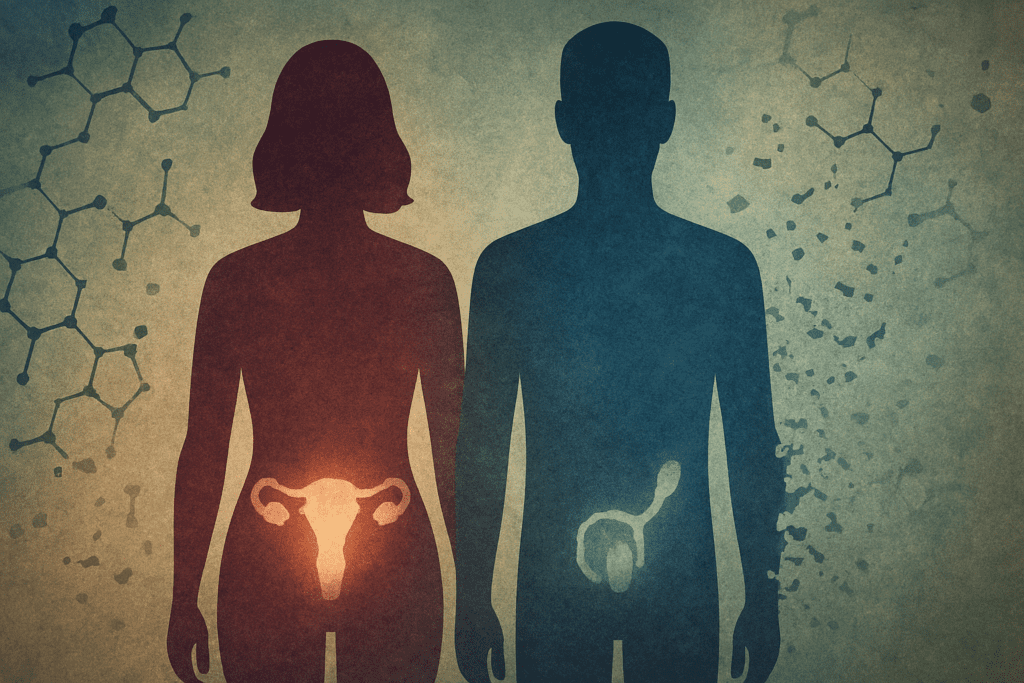
One Thing That Happens When You Are Deficient in Healthy Fats
While many symptoms of fat deficiency can present simultaneously, one thing that happens when you are deficient in healthy fats stands out for its systemic implications: hormonal imbalance. This consequence is not only scientifically grounded but can affect every major bodily function governed by hormones. Fats are the raw materials for synthesizing sex hormones like estrogen and testosterone, as well as stress hormones such as cortisol. When the body lacks healthy fats, it cannot produce these hormones in adequate quantities, leading to a cascade of issues.
In women, hormonal imbalance due to fat deficiency may manifest as irregular menstrual cycles, amenorrhea (the absence of menstruation), infertility, or worsened symptoms of menopause. In men, it may result in reduced libido, fatigue, and even decreased muscle mass. For both sexes, disruptions in cortisol levels can lead to impaired stress responses, poor sleep, and increased susceptibility to anxiety. Importantly, these effects may not appear immediately but can develop gradually with sustained fat restriction, making them more difficult to diagnose without a careful dietary assessment.
Moreover, hormonal imbalances affect metabolism, digestion, and immune response. For example, low estrogen levels can negatively impact bone density, increasing the risk of osteoporosis. Low testosterone can interfere with protein synthesis and muscle maintenance. These wide-ranging outcomes demonstrate why one thing that happens when you are deficient in healthy fats is far more than a simple dietary inconvenience. It becomes a foundational health issue with long-term consequences that extend across multiple systems in the body.
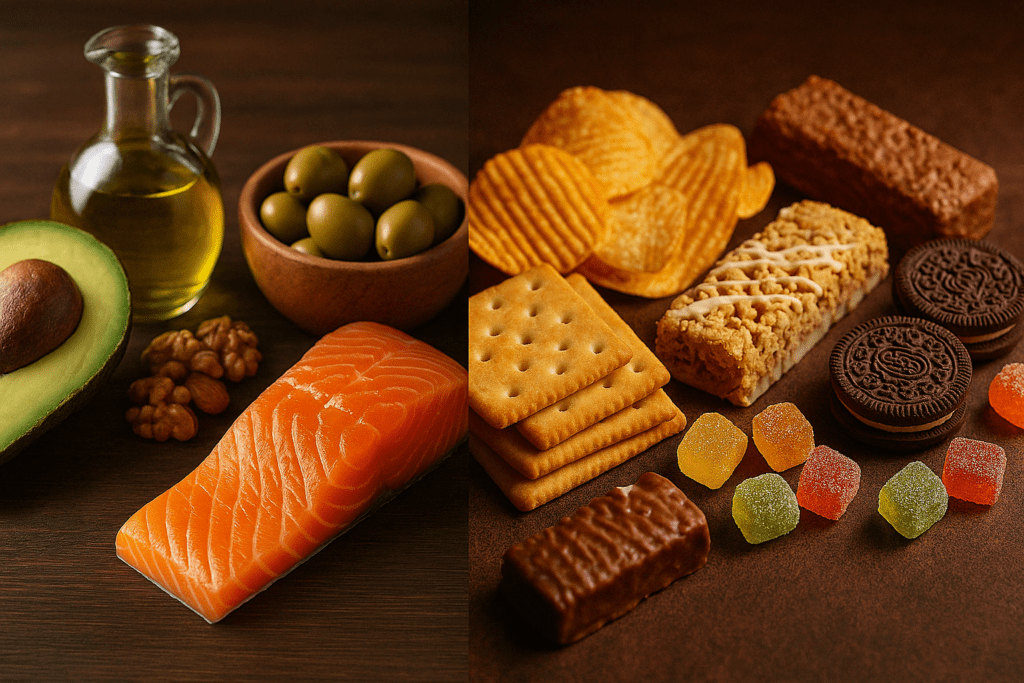
The Hidden Risks of Low-Fat Diet Culture
In the broader public health conversation, the popularity of low-fat diets has often obscured the nuanced reality that not all fats are created equal. Decades of nutritional advice promoted fat avoidance to manage weight and reduce cardiovascular risk, especially during the 1980s and 1990s. However, these guidelines often failed to distinguish between harmful trans fats and beneficial unsaturated fats. As a result, millions adopted diets that were not only low in saturated fats but also dangerously low in essential fatty acids.
This cultural shift has led to generations of individuals who associate dietary fat with weight gain or disease, regardless of the type or source. Unfortunately, the consequence has been an uptick in issues like dry skin, hormonal dysfunction, and cognitive decline that are directly tied to fat deficiency. For many people, understanding what are 3 symptoms of deficiency of fats is the first step toward recognizing the subtle damage caused by restrictive eating habits rooted in outdated science.
Furthermore, low-fat processed foods are often high in refined sugars and carbohydrates to enhance flavor, which introduces additional health concerns such as insulin resistance, obesity, and metabolic syndrome. By prioritizing the elimination of fat over nutritional balance, many individuals unintentionally increase their risk for chronic disease while simultaneously depriving their bodies of nutrients critical for long-term wellness.
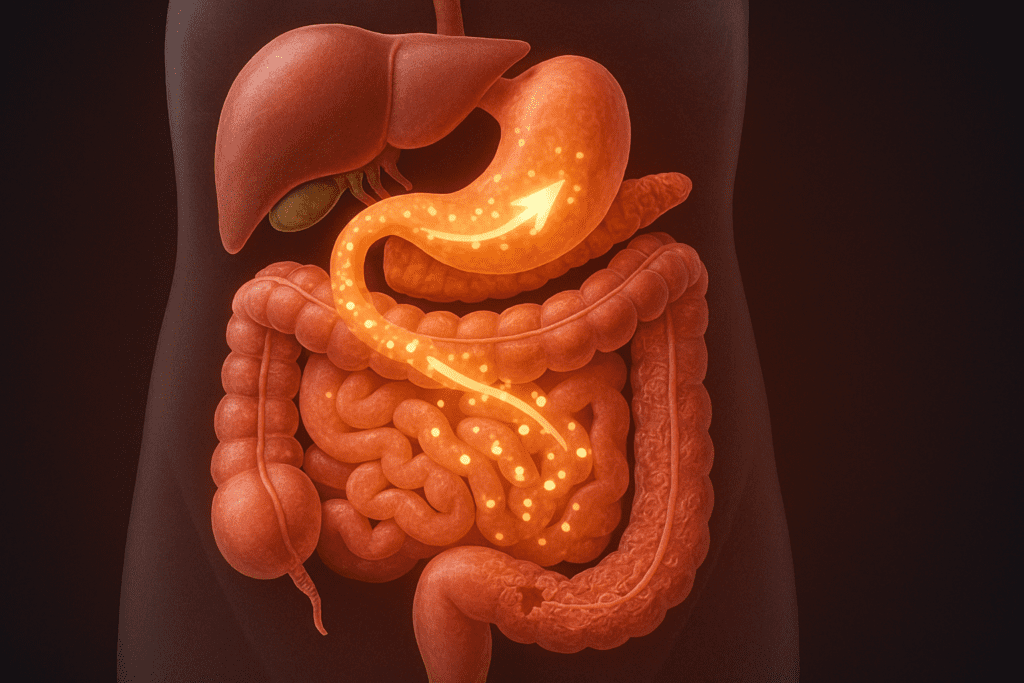
How Absorption Disorders Contribute to Fat Deficiency
In some cases, fat deficiency does not stem from insufficient intake but rather from the body’s inability to absorb fats properly. Medical conditions such as celiac disease, Crohn’s disease, cystic fibrosis, and chronic pancreatitis can interfere with the digestive system’s capacity to break down and assimilate fats. These conditions often damage the intestinal lining or impair bile production, which is essential for emulsifying fats during digestion.
Even individuals with a normal diet can develop fat-soluble vitamin deficiencies when malabsorption is present. Over time, this can lead to similar symptoms seen in dietary fat deficiency, including impaired immunity, poor skin health, and cognitive decline. In clinical practice, gastroenterologists often test for fat malabsorption when patients present with persistent digestive issues and unexplained nutritional deficiencies. This highlights that understanding one thing that happens when you are deficient in healthy fats also requires awareness of how gastrointestinal health intersects with nutrient metabolism.
For individuals diagnosed with fat malabsorption, treatment typically involves pancreatic enzyme replacement therapy, dietary modifications, and supplementation with medium-chain triglycerides (MCTs), which are easier to digest. Recognizing the interplay between digestion and nutrition is essential for both healthcare providers and patients seeking to address the root cause of their symptoms.
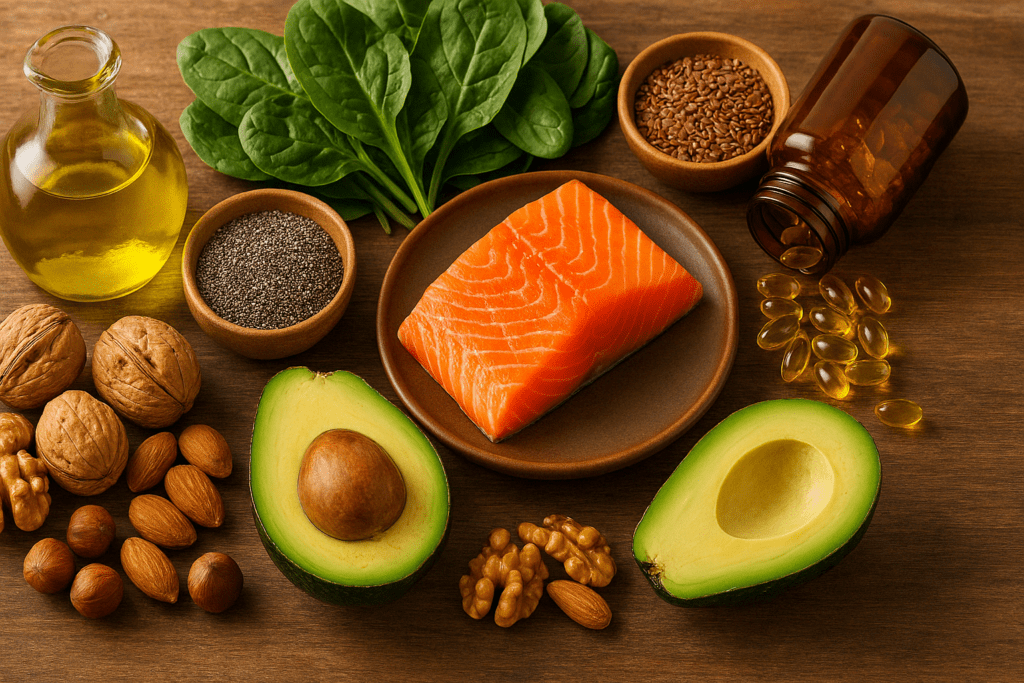
How to Correct Fat Deficiency Through Diet
Reversing fat deficiency begins with reintroducing high-quality, nutrient-dense sources of fat into the diet. This does not mean consuming fried foods or processed snacks high in saturated and trans fats. Instead, focus should be placed on integrating healthy fats from whole foods like olive oil, flaxseed, chia seeds, salmon, sardines, walnuts, and avocado. These foods not only supply essential fatty acids but also offer additional nutrients such as antioxidants, fiber, and plant-based protein.
Registered dietitians recommend that roughly 20 to 35 percent of your daily caloric intake come from fats, with an emphasis on unsaturated varieties. It is also advisable to include omega-3 fatty acids in particular, as these have been strongly linked to improvements in mood, cardiovascular health, and cognitive function. For those who do not consume fish, algae-based omega-3 supplements provide an effective alternative.
In addition to consuming the right types of fats, pairing them with other nutrients can enhance absorption. For instance, eating a salad with olive oil dressing improves the body’s ability to absorb fat-soluble vitamins from vegetables. Similarly, cooking with fat can increase the bioavailability of certain antioxidants, such as lycopene in tomatoes or beta-carotene in carrots. Through strategic dietary planning, individuals can restore nutritional balance and avoid the systemic effects that come with inadequate fat consumption.
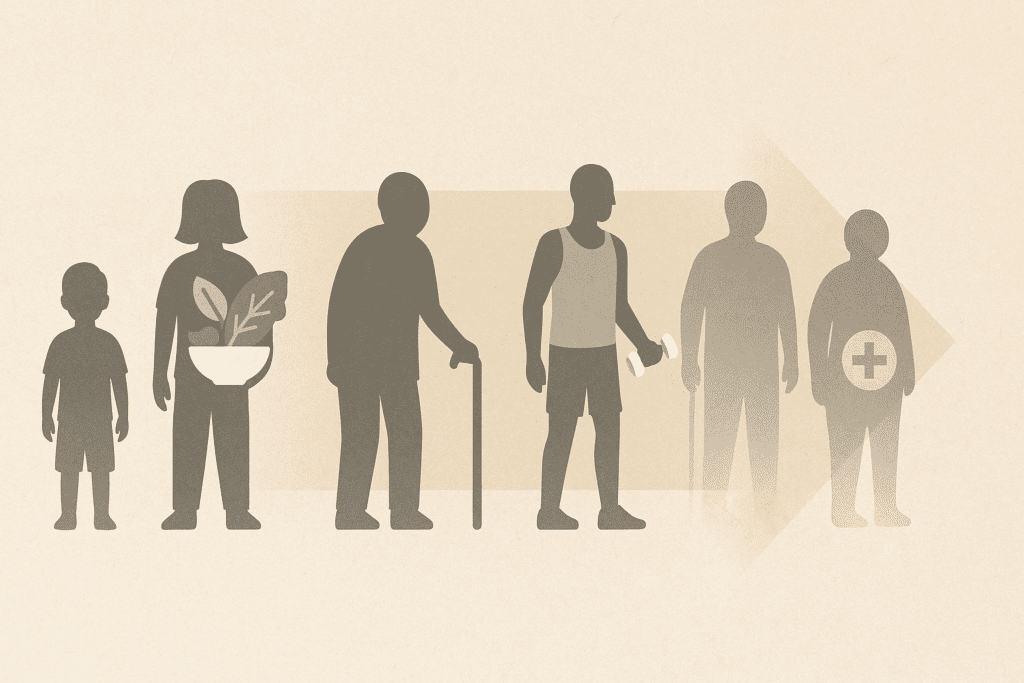
Who Is Most at Risk for Fat Deficiency?
While anyone can develop fat deficiency under certain conditions, specific populations face a higher risk. Vegans and vegetarians who avoid animal-based sources of omega-3s must be especially vigilant in ensuring adequate intake from plant-based sources. Athletes and individuals following extreme weight loss programs may also inadvertently consume too little fat, especially when caloric intake is tightly controlled.
Children and adolescents are another vulnerable group. During growth spurts, the body demands higher levels of fat for hormonal development and brain maturation. Inadequate fat during these critical stages may impair physical and cognitive growth. Likewise, older adults often experience changes in appetite, digestion, and nutrient absorption, placing them at risk for both overt and subclinical fat deficiency.
Healthcare providers stress the importance of regular dietary assessments, especially for patients presenting with symptoms such as cognitive fog, skin changes, or reproductive irregularities. By understanding what are 3 symptoms of deficiency of fats and identifying one thing that happens when you are deficient in healthy fats, clinicians can better evaluate risk factors and intervene before complications escalate.
Expert Insight on Long-Term Consequences of Fat Deficiency
Medical professionals caution that the long-term effects of fat deficiency go well beyond the more visible signs. Prolonged deficiency can alter gene expression, affect mitochondrial function, and increase vulnerability to neurodegenerative conditions. For example, low intake of omega-3 fatty acids has been associated with higher risk for depression, Alzheimer’s disease, and age-related cognitive decline. Additionally, chronic fat deficiency impairs immune function, making individuals more susceptible to infections and inflammatory diseases.
Endocrinologists emphasize that hormonal balance is intricately tied to fat metabolism. Without sufficient dietary fats, patients may require hormone replacement therapy, especially in cases of secondary amenorrhea or adrenal insufficiency. These treatments, while effective, do not replace the foundational role of nutrition in maintaining physiological homeostasis.
In sports medicine, clinicians note that fat-deficient athletes are at risk for the Female Athlete Triad (now referred to as Relative Energy Deficiency in Sport or RED-S), which includes disordered eating, menstrual dysfunction, and decreased bone mineral density. This highlights the importance of viewing fat as not merely a source of energy but as a critical component of overall health.
Frequently Asked Questions: Fat Deficiency
1. Can fat deficiency affect sleep quality or circadian rhythms? Yes, inadequate fat intake may disrupt sleep quality due to its impact on hormonal balance and neurotransmitter function. One thing that happens when you are deficient to fats is the dysregulation of melatonin production, which depends on essential fatty acids for synthesis. Melatonin, the hormone responsible for regulating circadian rhythms, is sensitive to changes in fat-derived hormone signaling. People with insufficient dietary fat may experience difficulty falling asleep, frequent night waking, or poor sleep architecture, particularly during REM sleep. Addressing fat intake through healthy sources such as omega-3-rich foods can restore hormonal harmony and improve overall sleep patterns over time.
2. How does fat deficiency influence immune system health? One lesser-known consequence of fat deficiency is its weakening effect on the immune system. Essential fatty acids like omega-3s and omega-6s play a regulatory role in immune cell signaling and inflammation control. One thing that happens when you are deficient to fats is a heightened vulnerability to infections due to reduced integrity of mucosal barriers and impaired white blood cell response. Over time, chronic inflammation can increase as a result of imbalance in prostaglandin production, which relies on fat-derived precursors. Replenishing dietary fat can strengthen both innate and adaptive immunity, particularly during recovery from illness or surgery.
3. Can a deficiency in fats lead to changes in mental health beyond cognitive fog? Absolutely. Beyond cognitive fog, what are 3 symptoms of deficiency of fats that extend into mental health include increased irritability, heightened anxiety, and a greater risk of depressive disorders. The brain relies on fat for myelin sheath formation and neurotransmitter efficiency, particularly serotonin and dopamine signaling. One thing that happens when you are deficient to fats is a reduction in neural communication speed, which can leave individuals feeling emotionally disconnected or overwhelmed by daily stressors. Psychiatrists increasingly recognize the role of dietary fats in stabilizing mood, and research supports therapeutic dietary fat interventions in mental health treatment plans.
4. Are children and adolescents at higher risk for developmental issues from fat deficiency? Yes, children and adolescents are particularly susceptible because their bodies and brains are still developing rapidly. What are 3 symptoms of deficiency of fats in this group often include stunted growth, delayed puberty, and attention difficulties in school. One thing that happens when you are deficient to fats during childhood is reduced synthesis of growth and sex hormones, which can cause delays in physical maturation and learning milestones. Parents should ensure children receive enough healthy fats through foods like nut butters, full-fat dairy (if tolerated), and fatty fish. Pediatricians often monitor growth and neurodevelopment closely when dietary restrictions are involved.
5. Can fat deficiency influence gut health and digestive enzyme production? Yes, fat deficiency may lead to suboptimal bile production and inadequate activation of digestive enzymes. One thing that happens when you are deficient to fats is a reduced secretion of bile acids by the liver, which impairs fat emulsification and nutrient absorption. This can create a feedback loop where fat-soluble vitamins (A, D, E, K) are poorly absorbed, further degrading gut barrier integrity. What are 3 symptoms of deficiency of fats in such cases include bloating, greasy stools, and nutrient malabsorption syndromes. Restoring balance through MCT oil supplementation or gradual reintroduction of dietary fat can support digestive recovery.
6. How can fat deficiency influence exercise recovery and performance? One of the lesser-explored consequences of fat deficiency is its negative impact on post-exercise recovery and endurance. What are 3 symptoms of deficiency of fats in athletes include persistent fatigue, decreased stamina, and joint discomfort due to reduced anti-inflammatory support. One thing that happens when you are deficient to fats is decreased production of prostaglandins, which help regulate inflammation and muscle repair. Inadequate fat intake can also impair mitochondrial energy metabolism, leading to reduced VO2 max and slower recovery times. Sports nutritionists recommend including omega-3s and other healthy fats in training diets to support resilience and injury prevention.
7. Does fat deficiency impact vision or eye health in specific ways? Yes, dietary fats, especially omega-3s like DHA, are vital for maintaining retinal health and visual acuity. One thing that happens when you are deficient to fats is a disruption in the lipid layers of the tear film, contributing to dry eye syndrome and blurry vision. What are 3 symptoms of deficiency of fats related to the eyes can include sensitivity to light, poor night vision, and prolonged adjustment to darkness. Long-term deficiency has even been linked to higher risk of macular degeneration. Regular intake of fatty fish, flaxseed oil, or eye-supporting supplements can help preserve visual function.
8. Can chronic fat deficiency affect bone density or musculoskeletal health? Emerging research suggests that fat plays an indirect yet significant role in maintaining skeletal integrity. One thing that happens when you are deficient to fats is impaired calcium absorption due to insufficient vitamin D uptake, a fat-soluble nutrient critical for bone health. What are 3 symptoms of deficiency of fats in this context may include bone pain, increased fracture risk, and reduced muscle strength. Furthermore, low-fat diets can suppress estrogen levels, which are protective against bone loss, especially in women. Orthopedic specialists now increasingly advocate for balanced fat consumption in postmenopausal and osteopenic patients.
9. Are skin conditions linked to fat deficiency more than just dryness? Definitely. Beyond mere dryness, one thing that happens when you are deficient to fats is a compromised skin barrier, leading to increased trans-epidermal water loss and susceptibility to environmental irritants. What are 3 symptoms of deficiency of fats manifesting in the skin might include redness, frequent rashes, and even slow healing of minor abrasions. Dermatologists often notice that patients with persistent eczema or dermatitis show low omega-3 levels. Nutritional interventions, including evening primrose oil or hempseed oil, are often used as adjunct therapy for inflammatory skin conditions.
10. How do cultural dietary trends contribute to underrecognized fat deficiencies? Modern dietary trends, such as clean eating or extreme plant-based regimens, can inadvertently restrict fat intake to problematic levels. One thing that happens when you are deficient to fats due to trendy diets is a gradual onset of subtle but chronic symptoms that are often misattributed to stress or aging. What are 3 symptoms of deficiency of fats that often go unnoticed include low energy, brittle hair, and hormonal irregularities. Because these diets are often promoted as superior health strategies, their restrictive nature may lead individuals to overlook essential nutrient gaps. Registered dietitians encourage education on balanced eating that includes ethically sourced or plant-based fats to avoid these silent deficiencies.
Conclusion: Why Recognizing Fat Deficiency Is Essential for Preventive Health
Understanding what are 3 symptoms of deficiency of fats and recognizing one thing that happens when you are deficient in healthy fats is more than an academic exercise—it is a vital step toward preventive health. Dry skin, cognitive decline, and impaired wound healing are more than cosmetic or occasional annoyances. They are red flags indicating deeper nutritional imbalances that, if left unaddressed, can evolve into chronic health issues.
The broader health implication is clear: fats are not the enemy. When chosen wisely and consumed in moderation, they are powerful allies in supporting brain function, hormone production, cellular integrity, and overall vitality. Rather than fearing fat, individuals should strive for balance, incorporating diverse sources of healthy fats into their daily meals while avoiding excessive intake of harmful trans and saturated fats.
By shifting the narrative away from outdated dietary dogma and toward a more evidence-based understanding of nutrition, healthcare professionals and individuals alike can foster a culture of dietary empowerment. Through informed choices and regular assessments, we can prevent the invisible toll of fat deficiency and cultivate long-term health from the inside out. In this way, the knowledge of what are 3 symptoms of deficiency of fats and the awareness of one thing that happens when you are deficient in healthy fats becomes not just clinically relevant, but profoundly life-changing.


